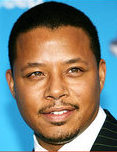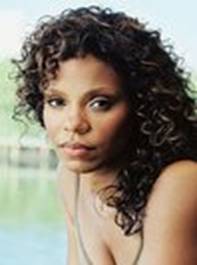Lately I've felt the doom and gloom overcome me when reading about the Spanish bears that have stopped hibernating, or the right-wing pile on of Jimmy Carter for stating the obvious, or our pResident's new brilliant strategy for dealing with Iraq. And don''t EVEN get me started on the sorry state of affairs in our own backyard. De Nile is not just a river in Eqypt, know what I'm sayin'? It appears to be flowing straight through the American heartland with no end in sight.
However, this Guardian/UK article posted by Will Hutton on Christmas Eve caught my eye. Hutton argues that 2006 was a vintage year for world-changing ideas - and get this, he means positive ones! His first, and I believe his most interesting point, is the importance of the growth of the web. Perhaps as someone who has been bitten by the blogger bug, I have a bias. But I couldn't agree more that the development of this interconnected web community is a world changing, paradigm shifting event.
Yet, I think he only scratches the surface in his analysis. The West has become a completely mediated environment, and much of the rest of the world is fighting to catch up and follow suit. The impact of media on our daily lives cannot be easily disregarded. Given that reality, the media we consume, how it is produced and by whom, makes a difference.
In film school, we were taught that form = content. This means that the way characters stood next to each other on the screen, or the way the lighting cast a shadow on an object, provided certain visual cues that the audience took meaning from. For instance, this image from The Lady from Shanghai gives the viewer a sense of danger and intrigue about Rita Hayworth's character Elsa Bannister because the low key lighting shadows so much of her face.
 Of course, Hayworth does indeed turn out to be quite the femme fatale, embroiling Orson Welles' character Michal O'Hara in a complex murder plot. Damn, don't these gullible film noir leads see the shadows like we do?!!!!
Of course, Hayworth does indeed turn out to be quite the femme fatale, embroiling Orson Welles' character Michal O'Hara in a complex murder plot. Damn, don't these gullible film noir leads see the shadows like we do?!!!!
In any case, the 20th century world of mass media is giving way to the 21st century internet world, and given that form equals content the difference is significant. Sure it's all "mass" media - TV, radio, newspaper, internet - but there are qualitative differences between last century's media and today's. TV, radio and newspapers are all produced by "experts" and "tastemakers" who know what's best for us - what we should know, what we should like and what we should want. These forms of media have become all the more toxic as monied, bottom-line interests have taken further root in the production and distribution processes. All one has to do is take a look at NBC's primetime line-up today and compare it to one from just 5 years ago, and the difference is obvious. And how about CNN's all junk news all the time?
No doubt there are pitfalls to online news (and entertainment) segments produced and posted by Joe Blow from the block. But the fact that Joe Blow can see an event with his own eyes, write about or record it, and then share that information far and (world)wide is revolutionary for its democratic possibilities. It no longer requires enormous sums of cash or access to contribute to the community dialogue. Conceivably all voices can be heard in the internet media production model. Not so much in the corporate controlled mass media world of General Electric's NBC or Clear Channel's Z-100 100.3 FM. Can it be a coincidence that the 20th century, with all its flirtations with fascism and its many forms (Nazis, Stalinists, McCarthy-ites, etc.), was also the century that gave rise to one-way mass communication controlled in the hands of the wealthy and powerful few?
Technorati Tags: mainstream media - internet - The Guardian UK - film noir





































